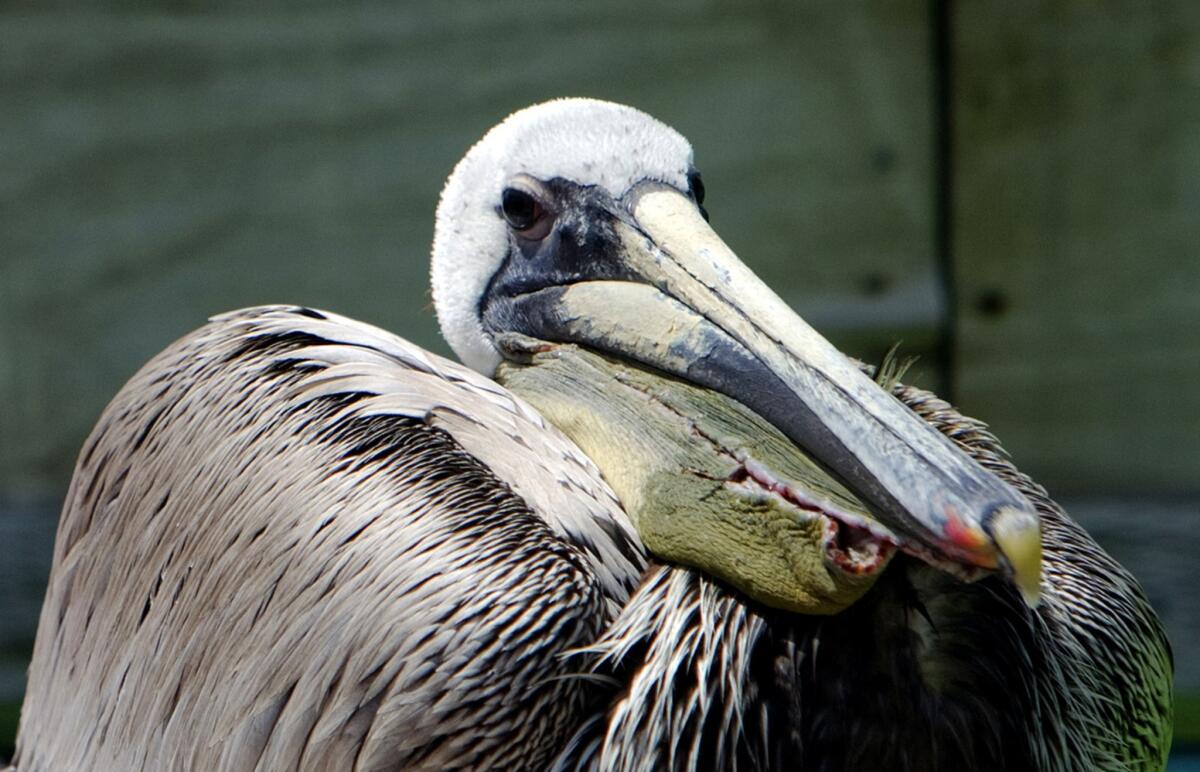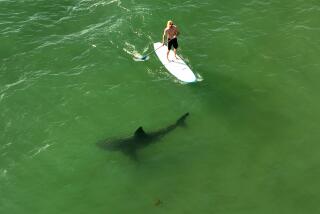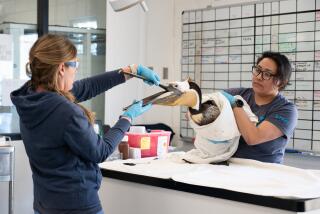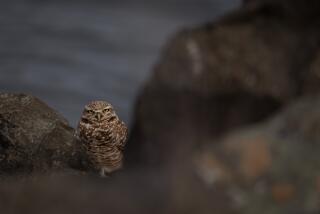$5,000 reward in case of brown pelican with slashed pouch

The reward for finding the person who attacked a brown pelican, slashing its throat, was raised to $5,000, a bird rescue organization announced Wednesday.
The Animal Legal Defense Fund, a nonprofit organization centered on protecting animals, joined the International Bird Rescue-Los Angeles Center to offer the reward.
Rescue officials say the female brown pelican is on track to a full recovery after its pouch was left hanging from its neck.
If charged, the culprit could pay a fine of up to $15,000 and serve up to six months in federal jail, said Erin Dean, resident agent in charge of the U.S. Fish and Wildlife Service’s Office of Law Enforcement for Southern California.
The brown pelican is one of many species protected under federal law, prohibiting the killing or harming of migratory birds, Dean said.
“We are hoping the reward will encourage someone to come forward. We do believe there is a witness out there that has information,” Dean said.
The bird rescue organization and animal officials say they have never seen an injury this severe to a brown pelican. They did not know what the motive was for the attack.
On April 16, a passerby called Long Beach Animal Control shortly after noon about a pelican flopping in the 5400 block of Ocean Boulevard. An officer arrived and wrapped the pelican in a towel and took it to the bird rescue center in San Pedro.
The pelican was cold and skinny and exhibited signs of malnourishment. The pelican’s pouch, made of two layers of elastic skin, had been slashed but was not jagged, suggesting the cut did not come from a snagged fishing line or hook.
“It would take potentially a lot of strength to hold that bird down,” said Andrew Harmon, spokesman for International Bird Rescue. “We don’t know if there was one or more perpetrators, but the injuries are consistent with human-inflicted injury.”
The brown pelican has started to eat sardines on its own, thanks to temporary staples holding together its torn pouch, officials said. It shares a flight aviary with fellow marine birds, one pelican and three Western gulls.
The injured pelican could have its first surgery next week, focused on suturing the pouch. The surgery could last up to 15 hours, officials said. More surgeries could follow before the pelican is deemed stable enough to return to the wild. That could take another two to four months.
Until then, it will continue receiving multiple exams each week. Harmon did not give a range but said the pelican’s care could cost “in the thousands.”
Julie Skoglund, International Bird Rescue operations manager, said the pelican has not shown any signs of additional problems since arriving at the facility.
Anyone with information is asked to call the U.S. Fish and Wildlife Service at (310) 328-1516 or Long Beach Animal Control at (562) 570-7387. Callers may report anonymously.
alicia.banks@latimes.com
Twitter: @AliciaDotBanks
More to Read
Start your day right
Sign up for Essential California for news, features and recommendations from the L.A. Times and beyond in your inbox six days a week.
You may occasionally receive promotional content from the Los Angeles Times.







